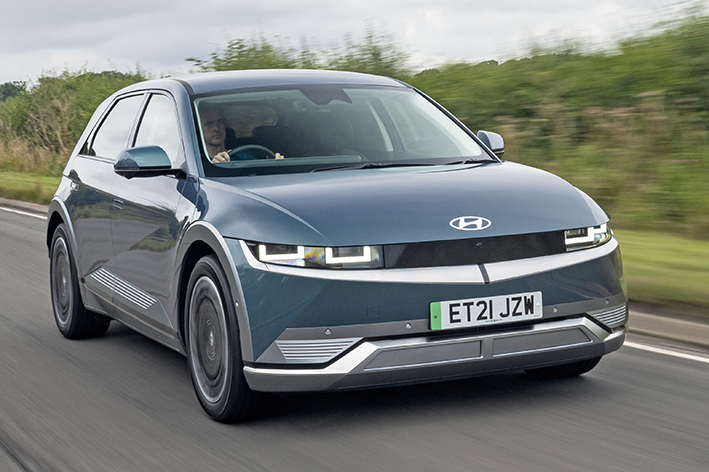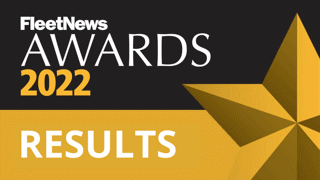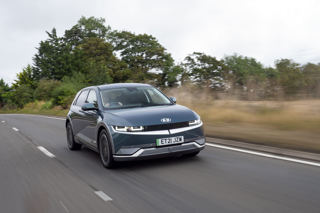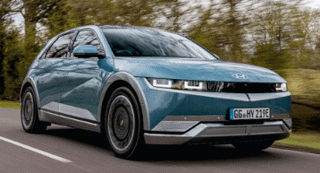
Amid a year of supply constraints and falling volumes, one car manufacturer is reaping the rewards of a reinvigorated sales strategy which saw its true fleet registrations more than double in 2021.
Hyundai has overhauled its approach to the fleet market, freely confessing to “chasing volume” in the years leading up to the Covid pandemic. It resulted in the corporate end-user accounting for just 8% of fleet sales.
The rest was tactical, short-cycle business, which had an inevitable impact on residual values (RVs) leading to uncompetitive leasing rates.
Official Society of Motor Manufacturers and Traders (SMMT) figures reveal that 15% of Hyundai’s total registrations were to the rental market in 2018, markedly ahead of the industry average of 9%.
 “We were not in control of our own strategy,” says Tim White (left), who was appointed fleet director in May 2021 and was the architect of the new approach.
“We were not in control of our own strategy,” says Tim White (left), who was appointed fleet director in May 2021 and was the architect of the new approach.
Hyundai’s revival is down to much more than a refocusing of its channel tactics. It coincides with new electric product which is helping the company to ride the zeitgeist in an era of fleet sustainability, while the launch of Hyundai Business has resulted in a more defined customer journey for both drivers and fleets.

Amid a year of supply constraints and falling volumes, one car manufacturer is reaping the rewards of a reinvigorated sales strategy which saw its true fleet registrations more than double in 2021.
Hyundai has overhauled its approach to the fleet market, freely confessing to “chasing volume” in the years leading up to the Covid pandemic. It resulted in the corporate end-user accounting for just 8% of fleet sales.
The rest was tactical, short-cycle business, which had an inevitable impact on residual values (RVs) leading to uncompetitive leasing rates.
Official Society of Motor Manufacturers and Traders (SMMT) figures reveal that 15% of Hyundai’s total registrations were to the rental market in 2018, markedly ahead of the industry average of 9%.
 “We were not in control of our own strategy,” says Tim White (left), who was appointed fleet director in May 2021 and was the architect of the new approach.
“We were not in control of our own strategy,” says Tim White (left), who was appointed fleet director in May 2021 and was the architect of the new approach.
Hyundai’s revival is down to much more than a refocusing of its channel tactics. It coincides with new electric product which is helping the company to ride the zeitgeist in an era of fleet sustainability, while the launch of Hyundai Business has resulted in a more defined customer journey for both drivers and fleets.
Meanwhile, a refreshed website includes a new fleet section which incorporates wholelife cost calculators, benefit-in-kind (BIK) tools and competitor comparisons.
Hyundai Business has also acted as the catalyst for an improved customer terms agreement engine and leasing company portal which creates automated up-to-date terms with instant approval, plus live agreement updates.
“These systems put the fleet and leasing customer at the centre of everything we do,” White says.
“The launch of Hyundai Business was the start of our journey into fleet. It’s about how we talk to the marketplace and the consistent communications needed as we grow our database. It’s gives us a clear brand identity and is knitted together with our product development.”
The results are impressive. Hyundai has seen its true fleet sales rise a staggering 104%, with its share of the market almost doubling from 1.8% to 3.2%. Corporate end-user business now accounts for 26% of fleet sales (Fleet News, April 2022).
It has enabled the company to dramatically tone down its presence in the short cycle market, with rental dropping to 7% of total sales in 2021, against an industry average of 8.6% (in Q1 2022, it has fallen again, to 5%).
Hyundai also switched from a blended sell and buyback approach to having all rental cars on buyback so they can be repatriated via its franchised network. This gives it greater control over how they are remarketed.
 The changes have seen RVs strengthen from “being fifth in the basket to second at the end of 2021”, according to Hyundai UK managing director Ashley Andrew (right). “Our average selling price has increased from £14,000 to £22,000 and the improvements have been from small cars to SUVs,” he adds.
The changes have seen RVs strengthen from “being fifth in the basket to second at the end of 2021”, according to Hyundai UK managing director Ashley Andrew (right). “Our average selling price has increased from £14,000 to £22,000 and the improvements have been from small cars to SUVs,” he adds.
The corporate end user strategy is the culmination of a two-year journey to fast-track back office functions, processes, teams, communications and lead generation databases and one which was central to Hyundai being named the Most Improved Fleet Manufacturer at the 2022 Fleet News Awards. Andrew says:
“2021 was the first time we had a market where all the foundation work could be realised. It was the acid test for us.
“Our focus has been on volume, but, with the introduction of innovative electric powertrain and a change in our design ethos, which started with the i10 in 2020, we are changing to premium. We had to change what we were doing – how we went to market, our structure, in order to be included on true fleet and user-chooser policy lists.”
He is now targeting the likes of Toyota and Volkswagen and recognises that RVs are core to the premium transition, which he describes as “volume premium”.
With the all-electric Ioniq 5 and plug-in hybrid Tucson paving the way, Hyundai now has a clear plan to maximise the opportunities offered by its product launch plan of 11 full EVs by 2030, with new architecture coming in 2025. New models will push the brand further into the premium sector with electrification encouraging businesses to re-evaluate their manufacturer partners.
“With the Ioniq 5, we are already right in the premium space; we see Range Rovers and Audi e-tron coming in against it,” says Andrew. “Electric gives the market an opportunity to re-evaluate every brand. It has become a game changer.”
Its biggest challenge has been to get people into the cars, particularly with the restrictions enforced by the Covid lockdowns of 2020 and 2021. A new virtual experience centre accessed via its website has helped, offering company car drivers and private buyers an immersive augmented reality environment. It is intended to complement, not replace, the retail network.
Hyundai’s total order take is currently exceeding 2,500 per week, substantially ahead of the business plan, which puts its Vision 2025 strategy of more than 100,000 registrations and a 4% market share well in sight.
Meanwhile, in the space of just two years – 2019-2021 – Hyundai has seen its fleet mix transpose from 70% internal combustion engine (ICE)/30% ultra-low emission (ULEV) to 70% ULEV/30% ICE.
It’s even more impressive than that; splitting ULEVs into full electric (BEV) and plug-in hybrid (PHEV) gives a mix of 50% BEV/20% PHEV/30% ICE.
In addition, SUVs now account for 65% of sales, transporting Hyundai away from its traditional small car profile.
Its order take this year in the true fleet market unmistakably illustrates the direction of travel, with full electric accounting for 70% and PHEV 11%. ICE has dropped to just 19%.
“We are the opposite way round to a lot of manufacturers,” says White. “In fact, we still have to get people to realise we have other models outside of BEVs!”
Andrew adds: “We have a real focus on retail and the end-user fleet, and this is where we see an even balance (in sales). On top of that is Motability, but we will do minimal short-cycle channels. Our job is to sustain the strong RVs and build on our success to date. We now own our destiny.”
Judges' comments:
Hyundai has taken a holistic approach to fleet relationships with a business brand, new website, new terms, bespoke offerings and network training for an enhanced service, resulting in significant improvements over the past 12 months. Judges praised its outstanding communications during the lead time challenges and noted the massive advancements in product and battery technology.
Commitment to embracing several types of alternative fuel
With 11 full electric cars scheduled for launch over the next eight years, Hyundai is well placed to comment on the expected evolution in technology.
This includes charging speeds. The Ioniq 5 can charge up to 80% in 18 minutes, and that speed “will increase as we develop newer technology”, says Ashley Andrew.
However, it also has interests in other technologies, including hydrogen fuel cell (HFC), which is believes is the solution for heavier commercial vehicles.
“We are investing towards the hydrogen society because we also see this in logistics, shipping and ports,” Andrew says. “When the infrastructure comes, then we can introduce cars alongside CVs.”
A project in Switzerland has shown it requires 15 HFC trucks to make a hydrogen fuelling station commercially sustainable, or 70 cars.
“So, it has to be a truck play first,” Andrew adds.
Hyundai is also heavily involved in future transportation and mobility developments through its Supernal division, which has invested in British start-up Urban-Air Port.
“We see that as the future for inner city transportation,” Andrew says. “Clean mobility is the vision for the group.”
Login to continue reading.
This article is premium content. To view, please register for free or sign in to read it.






















Login to comment
Comments
No comments have been made yet.